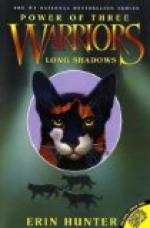Charming Billy, as was consistent with his hunger and his weariness and the general mood of him, “cussed” rather fluently and jerked the horse forward a step or two before he saw some one poised hesitatingly upon the manger in the nearest stall.
“I guess he’s afraid of me,” ventured a voice that he felt to his toes. “I was hunting eggs. They lay them always in the awkwardest places to get at.” She scrambled down and came toward him, bareheaded, with the sleeves of her blue-and-white striped dress rolled to her elbows—Flora Bridger, if you please.
Billy stood still and stared, trying to make the reality of her presence seem reasonable; and he failed utterly. His most coherent thought at that moment was a shamed remembrance of the way he had sworn at his horse.
Miss Bridger stood aside from the wild-eyed animal and smiled upon his master. “In the language of the range, ‘come alive,’ Mr. Boyle,” she told him. “Say how-de-do and be nice about it, or I’ll see that your coffee is muddy and your bread burned and your steak absolutely impregnable; because I’m here to stay, mind you. Mama Joy and I have possession of your kitchen, and so you’d better—”
“I’m just trying to let it soak into my brains,” said Billy. “You’re just about the last person on earth I’d expect to see here, hunting eggs like you had a right—”
“I have a right,” she asserted. “Your Dilly—he’s a perfect love, and I told him so—said I was to make myself perfectly at home. So I have a perfect right to be here, and a perfect right to hunt eggs; and if I could make that sentence more ‘perfect,’ I would do it.” She tilted her head to one side and challenged a laugh with her eyes.
Charming Billy relaxed a bit, yanked the horse into a stall and tied him fast. “Yuh might tell me how it happened that you’re here,” he hinted, looking at her over the saddle. He had apparently forgotten that he had intended leaving the horse saddled until he had rested and eaten—and truly it would be a shame to hurry from so unexpected a tete-a-tete.
Miss Bridger pulled a spear of blue-joint hay from a crack in the wall and began breaking it into tiny pieces. “It sounds funny, but Mr. Dill bought father out to get a cook. The way it was, father has been simply crazy to try his luck up in Klondyke; it’s just like him to get the fever after everybody else has had it and recovered. When the whole country was wild to go he turned up his nose at the idea. And now, mind you, after one or two whom he knew came back with some gold, he must go and dig up a few million tons of it for himself! Your Dilly is rather bright, do you know? He met father and heard all about his complaint—how he’d go to the Klondyke in a minute if he could only get the ranch and Mama Joy and me off his hands—so what does Dilly do but buy the old ranch and hire Mama Joy and me to come here and keep house! Father, I am ashamed to say, was abjectly grateful to get rid of his incumbrances, and he—he hit the trail immediately.” She stopped and searched absently with her fingers for another spear of hay.




